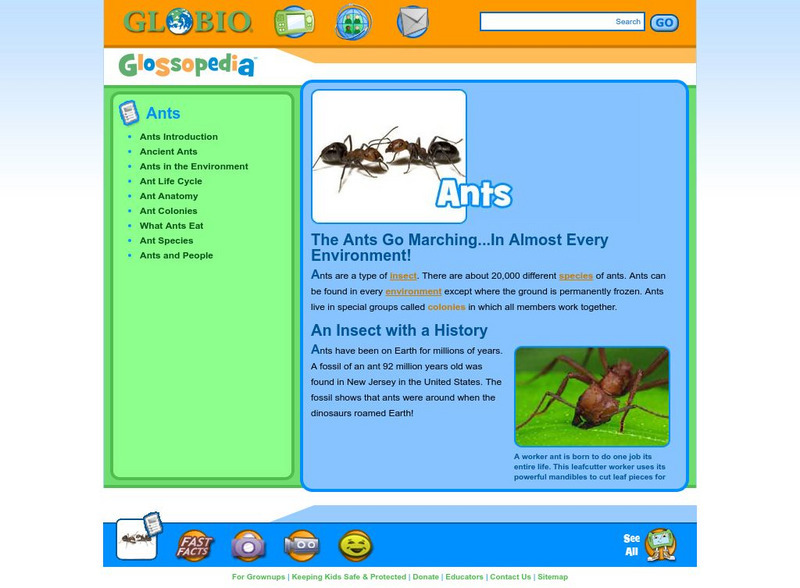Curated OER
Imaginary Insect Zoo
Learners create imaginary insects that contain essential characteristics of an insect, such as six legs and three body parts. In this Science/Arts lesson, students distinguish between an insect and non-insect. Learners create their...
Curated OER
Chain Reaction
Students read a magazine on chain reaction and complete an included crossword puzzle. They select one interesting fact they learned and share it with the class, playing a game of truths and lie. Next, the students create 3 statements,...
Curated OER
Insect or Spider?
Students compare and contrast the difference between insects and spiders. After a brief class discussion, students complete an activity matching the body parts of an insect and the body parts of a spider. Worksheet with answer key is...
Curated OER
Insect Models
Students explore insects and have many opportunities to discuss, reflect, and record their explorations individually and in groups. They then make models of the insects as outlined in the lesson.
Globio
Glossopedia: Ants
Ants are small, but important insects. Ant anatomy, reproduction, life cycle and community are discussed. Impact on the environment and humans is also described.
Cynthia J. O'Hora
Mrs. O's House: Select and Insect Mascot for School or Community
Based on a scenario given, students will work to nominate an insect mascot for the school or the community for an upcoming event. Students will conduct research through resources provided or their own, create a presentation, and vote for...
Other
Uk Safari: Creepy Crawlies
Click on a picture of an arthropod, such as an earthworm, spider, or slug, and a picture, description, and other facts will appear along with the photo of the insect.
Other
The Bug Club: Bug Pets
The Bug Club for young entomologists offers answers to insect questions, a colorful newspaper, and invertebrate caresheets if you're interested in keeping bugs as pets.
Other
Walking Well: Arthropod Stings
This site has interesting information about stings from different arthropods like bees, wasps, hornets, yellow jackets, ants, caterpillars, spiders, ticks, centipedes, millipedes, and scorpions.










